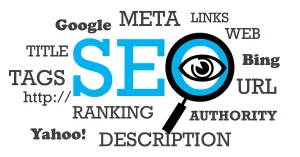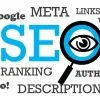A career in accounting requires a lot of intelligence, skill, and hard work. However, the need for accountants to pass countless tests, have an affinity for numbers, and dedicate their time to research has led to some questionable stereotypes.
Accountants have long been pigeonholed as number-crunchers and socially awkward individuals stuck under stacks of financial reports in tiny office cubicles. The job is rarely seen as rewarding, with dynamic, strategic accountants responsible for pushing their industry forward and safeguarding the financial futures of global businesses.
With the dawn of the digital age, these stereotypes are finally starting to fade away. An accounting role is a desirable position for many, allowing hopefuls to play a crucial role in any number of industries. But there are still those who are turned away from a future in accounting by the job’s lingering stereotypes.
In this article, we’ll be delving into why the poor reputation surrounding the accounting profession needs to be dispelled. We’ll explore the role that accounting plays in the modern business landscape, the ever-changing duties of accountants, the countless benefits the job offers, and how accounting is at the forefront of technological change.
The Evolving Role of Accountants
Accounting has been a significant aspect of business for as long as human beings have operated businesses. The first known financial records, found in what was once Mesopotamia, have been dated back almost 7000 years. But, for much of history, accounting has simply been about recording expenses and income, and balancing those numbers.
In the latter half of the twentieth century, accounting slowly started to evolve, with accountants taking on new duties. They were no longer an addition to the businesses they worked for, but an important part of their daily operation. Some of these duties include:
Data Interpretation
Accountants no longer have two columns of debit and credit to fill in to complete their work. Now, they work with a huge range of potentially conflicting data to provide fine-tuned, effectively presented, and customized reports based on their client’s requirements.
Financial Analysis
Rather than being mere record-keepers, accountants must now know how to analyze the data they record. This analysis can uncover trends and patterns that have formed in the past to guide businesses in their futures.
Strategic Planning
With financial planning now an important aspect of business success, accountants have shifted from being passive observers to being an active part of managing an organization day-to-day. Accountants now play a pivotal role in aligning financial expectations with a company’s goals and objectives.
Decision Making
Leading on from the above, this new hands-on role means accountants play a vital part in guiding business decisions. They often advise managers in every area of a company, making consistent assessments of any and all paths to success that business leaders may choose.
Interdisciplinary Collaboration
As necessary individuals in any modern company, accountants work closely with financial advisors and CFOs. However, this collaboration doesn’t end on the same corridor but continues throughout every department. Accountants must know how to work with and advise professionals from various backgrounds, fostering collaboration and simplifying complex financial information.
Regulatory Expertise
Many years ago, accounting existed solely to help business owners. However, nowadays businesses work within a larger framework of regulatory organizations. Accountants must report to their clients and legal bodies, submitting to audits to check the accuracy and validity of their work. Keeping on top of legal matters is a mandatory duty for the modern accountant.
While stereotypes dictate that accountants work long and unsociable hours, the reality is that accountants are dedicated to providing the highest quality of work, even if that means sacrificing their time. While some people believe that accountants are overly analytical, this disposition is crucial for problem-solving and making informed financial decisions. Though accountants are stereotyped as introverted and cautious, in reality, they are safeguarding the financial futures of their partners. Though the nerdy accountant has become a negative stereotype, its roots can be found in the myriad of positive traits and invaluable skills that accountants must possess.
The Benefits of Becoming an Accountant
So, with accounting becoming one of the most important professions regarding business success, and budding accountants being able to see through negative stereotypes, what else makes becoming an accountant surprisingly cool?
- Financial Stability - Accounting is a high-income profession, with the average annual salary for American accountants at just over $62,000. Accountants enjoy a financial stability unique to the profession.
- Diverse Career Opportunities - A desirable aspect of accounting is that its practitioners can choose from a variety of industries to work with and within. Hospitals, publishing houses, restaurants, schools, and individuals like athletes, authors, and artists all need accountants.
- High and Consistent Demand - Though training as an accountant is a time-consuming process, once it is completed, accountants have access to job opportunities for the rest of their lives. In fact, employment opportunities for accountants are expected to increase by 4% by 2032.
- Global Relevance - It’s not just businesses in America that require accountants. If accountants make the effort to become familiar with regulations overseas, accounting can provide international job opportunities.
- Intellectual Challenge - Accounting isn’t like a lot of other vocations, wherein a theoretical peak in knowledge can be reached. As the industry is constantly changing, accountants always have new skills to learn and duties to take on to keep their clients happy.
- Professional Recognition - Speaking of learning new skills, accountants can become accredited and certified in a range of specialties. As well as the mandatory CPA and CMA accreditations, accountants can gain Certified Information Systems Auditor (CISA), Certified Fraud Examiner (CFE), and Certified in Financial Forensics (CFF) qualifications. This opens up multiple branches for career progression.
- Personal Satisfaction - After working with a client for a long period, guiding them to success, and steering them away from failure, accountants experience a gratification that is distinct in the landscape of modern business.
The positives of working as an accountant far outweigh the negatives associated with false stereotypes. In a world where job security and competitive compensation are hard to come by, the rigorous work required to become an accountant is more than worth it.
Technological Advancements in Accounting
In many ways, accountants have been some of the most willing to embrace technological change and use it to their advantage. It’s no surprise that the profession is thriving, given this technological integration.
With technology now a vital aspect of business success, in welcoming it, accountants have further broken down the nerdy stereotypes and aligned themselves with one of the most innovative industries on the planet.
Modern accountants utilize technology to:
- Save Costs - With the help of automated accounting technology, accountants can handle vast amounts of data in reduced time. This saves money on resources, such as storage and filing, and cuts down operational costs as accountants can set their schedules and work from anywhere.
- Improve Security - Accounting firms are the fifth most targeted businesses by cybercriminals. This is not surprising, given sensitive financial data is highly sought after by malicious forces. As a result, accountants have been at the forefront of adopting stringent cybersecurity measures. From firewalls and encryption to intrusion detection and prevention systems, tech-savvy accountants take security seriously.
- Motivate and Automate - Machine learning algorithms have become a main tool in accountants’ kits. Rather than these algorithms threatening accountants’ jobs, they have been embraced for their ability to automate data entry and analysis. This cuts down the time it takes for accountants to complete manual tasks, allowing them to prioritize the human element of the profession and communicate effectively with their clients.
- Increase Accuracy - Almost 94% of accountants have adopted cloud accounting, and 67% prefer it to traditional accounting methods. This is significant as this software is often more reliable and accurate than accountants who have to create and maintain large data sets. Fewer inaccuracies mean happier clients, no regulatory pushback, and a boost for the professional reputation of the industry as a whole.
- Ensure Client Satisfaction - As well as cloud accounting software, other technological applications for accountants include using AI chatbots to keep client wait times down and streamline communication. Given the above benefits of embracing technology in their firms, it’s no surprise that accountants who make use of cloud accounting and other such software enjoy 5 times the clients than accountants who don’t.
In Conclusion…
The stereotype of the nerdy accountant who spends all day staring at spreadsheets, disconnected from the real world of business, is outdated. These stereotypes developed due to positive traits held by accountants, and, thankfully, younger generations are coming to see accounting as the rewarding and essential job that it is.
Accountants now play an active role in the success of every business, from major corporations with global dominance right down to local souvenir stores. They work with teams in every area of a business to drive profit, influence decisions, and allow companies to achieve their short and long-term goals.
Accountants exploit a large number of emerging technologies to their advantage, applying machine learning algorithms, cloud software, and state-of-the-art cybersecurity measures to keep clients satisfied. Few other industries stand at the forefront of innovation in every sector as accounting does.
To those who aspire to be an accountant or are considering a future in accounting, take pride in your choice. You will be a part of a constantly evolving, diverse, and vital profession that spans every country on earth. Now that is cool.
Sources
- https://www.bbc.co.uk/news/business-39870485
- https://yourfuture.accaglobal.com/global/en/blog/how-humans-invented-accounting.html
- https://online.maryville.edu/blog/history-of-accounting/
- https://www.investopedia.com/terms/a/accountant.asp
- https://wrpartners.co.uk/insights/the-hidden-benefits-of-having-a-skilled-accountant-in-your-business/
- https://www.fnu.edu/6-benefits-accountant/
- https://www.accounting.com/resources/reasons-to-choose-an-accounting-career/
- https://www.forbes.com/sites/forbestechcouncil/2022/11/30/how-technology-is-transforming-accounting/
- https://www.indeed.com/career/accountant/salaries
- https://www.bls.gov/ooh/business-and-financial/accountants-and-auditors.html
- https://zipdo.co/statistics/cybersecurity-in-accounting/
- https://goremotely.net/blog/accounting-statistics/





















Add comment